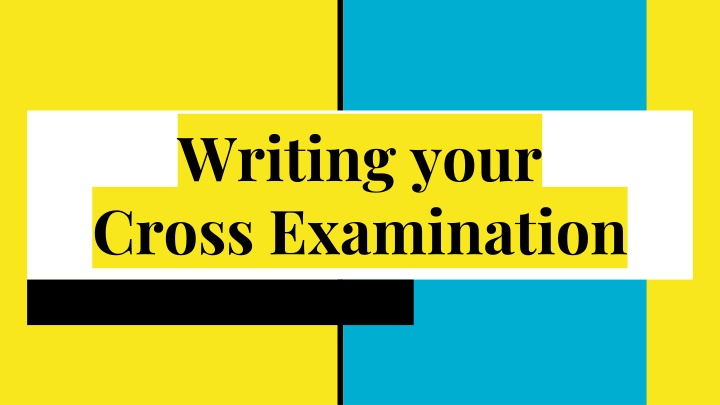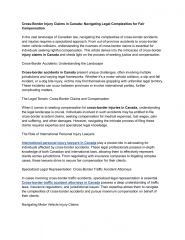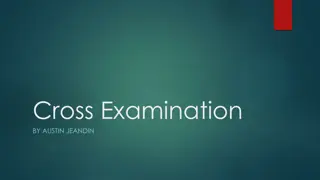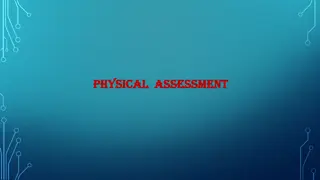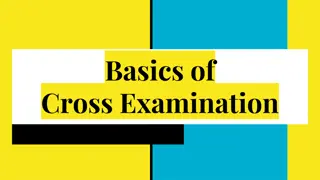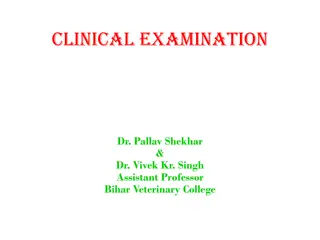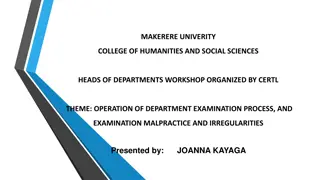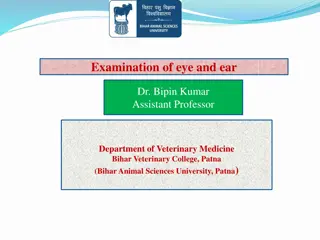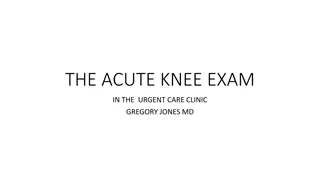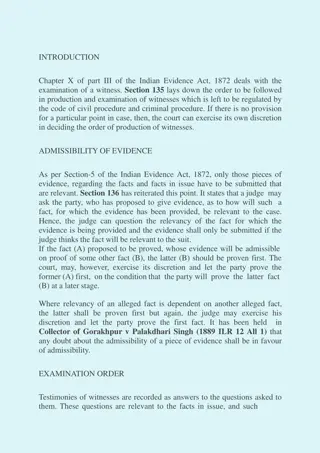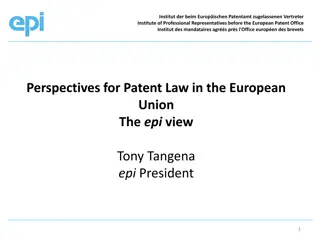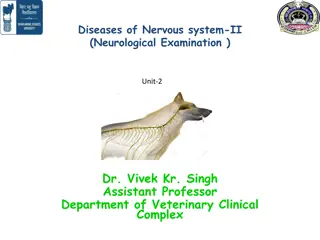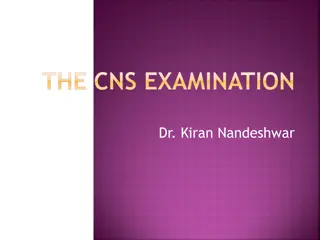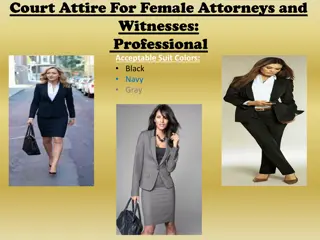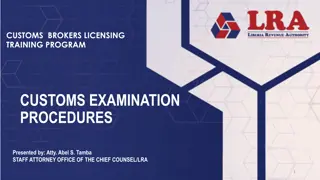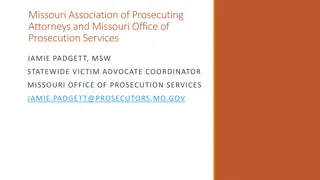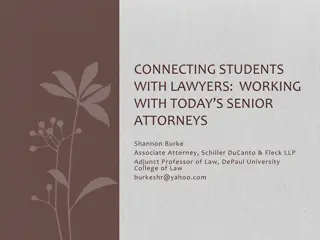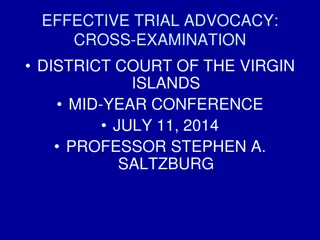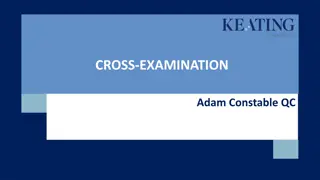Mastering Cross Examination Techniques for Attorneys
Learn how to script effective cross-examination questions, turn witness statements into probing inquiries, watch your phrasing, use transitions smoothly between questions, and prepare outlines for impeachments. Enhance your cross-examination skills to extract crucial testimony from witnesses in legal proceedings.
Download Presentation

Please find below an Image/Link to download the presentation.
The content on the website is provided AS IS for your information and personal use only. It may not be sold, licensed, or shared on other websites without obtaining consent from the author.If you encounter any issues during the download, it is possible that the publisher has removed the file from their server.
You are allowed to download the files provided on this website for personal or commercial use, subject to the condition that they are used lawfully. All files are the property of their respective owners.
The content on the website is provided AS IS for your information and personal use only. It may not be sold, licensed, or shared on other websites without obtaining consent from the author.
E N D
Presentation Transcript
Writing your Cross Examination
Script Your Cross Examination Questions First, figure out what testimony you want to get out of the witness. Then, determine what questions you need to ask to get them to give the testimony you need. The must-follow rule for cross examinations for attorneys is: Never ask a question you don t know the answer to. Write out the questions you want to ask the witness. You want to get the wording right, so that the witness must give you the answer you want. Consider patterning your questions after statements the witness made in their witness statement. After you write out your questions, put them in the order you want to ask them. (See Lesson Plan for activity to help students practice these skills).
Turn the Witness Statements into Your Questions Once you have a list of the good stuff from the witness s statement, turn them into your questions by asking something like, Isn t that true? Here s an example. Your witness is the defendant s friend and the witness statement says, I was with David Defendant all night on February 14. We found out later that Victor Victim was killed on the 14th. You would turn this statement into a question like: You were with the defendant all night on February 14, isn t that right? You can even quote the witness s statement verbatim if you d like. For example, if you re cross examining the defendant, you might ask: After your conversation with the victim, you were angrier than [you] had ever been , weren t you?
Watch your phrasing Be careful about how you phrase your questions. Don t ask questions like When you allegedly saw the attack you claimed to have seen, isn t it true you were standing 50 feet away!? Ask your questions more objectively; for example: Isn t it true you were standing 50 feet away from the attack when it happened?
Use transitions to move smoothly between questions/topics Use transitions to guide the judges/jury through the points you are trying to make. First, I d like to ask you about your relationship with the defendant. You had only met the defendant a few times, correct? In fact, you hadn t seen him for 6 months before the night of the crime. Next, I d like to ask you about what you saw the night of the murder. You testified that you wear glasses so that means you cannot see clearly from a distance, correct? So how could you be sure it was the defendant you saw?
Prepare an outline to help with Impeachments if necessary When preparing your outline for cross examination, make three side-by-side columns on your paper. On the left side, list the questions you ll ask. In the middle column, right the answer the witness should give In the right-hand-side column, you ll list the case packet page number and line number where the witness answers the question you re asking. You want to do this so that if the witness gives something different from what you expected, you can impeach them without wasting any time or fumbling through the case packet. And you ll look professional and prepared.
How to impeach There are three steps to impeaching a witness: 1. Repeat the witness s testimony and ask them to confirm. 2. Ask the witness to confirm that they previously gave a witness statement and that this witness statement was given under oath. 3. Read from the witness statement, citing the page and line number.
Be flexible Listen carefully to the direct examination of your witness -- They may hand you something that you didn t plan on including in your crosses, such as contradicting your witness statement. Judges will expect you to pick up on these mistakes and address them in your crosses. Not everything can be scripted.
Acknowledgment Information for this slideshow came from: https://mocktrialnerd.com
